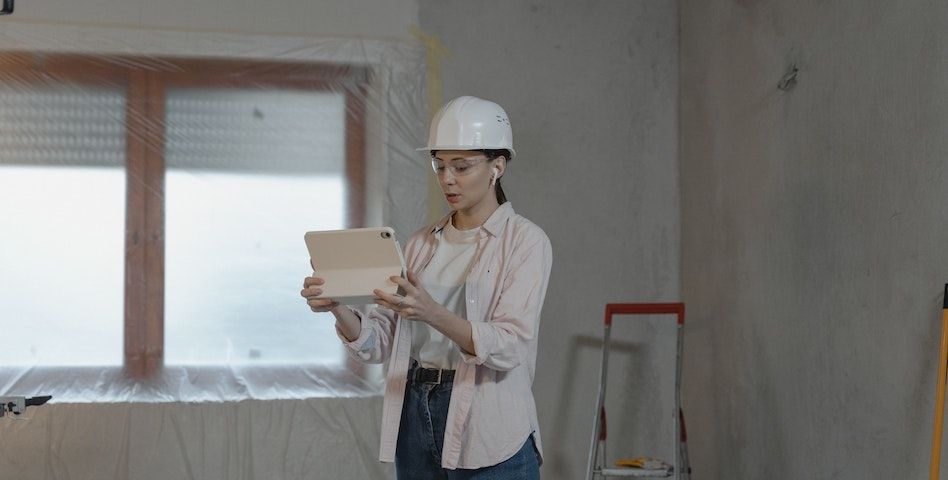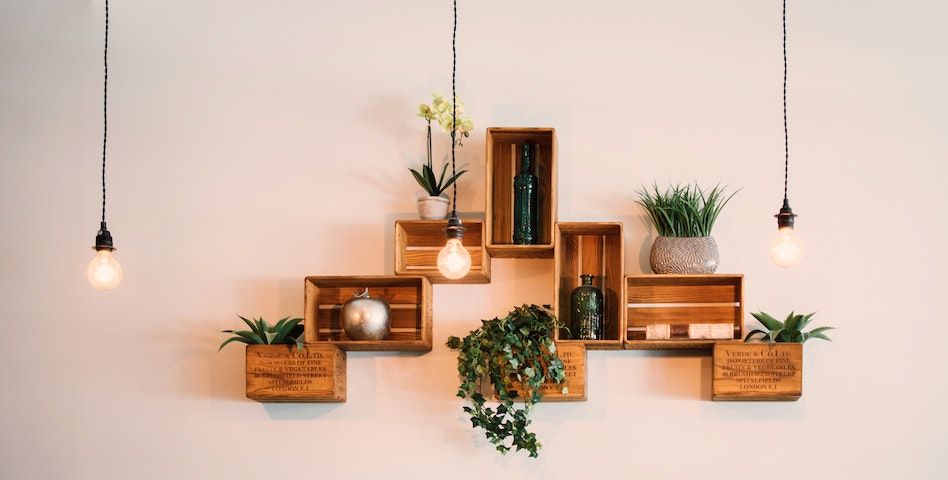In this blog, we'll delve into the journey of becoming an interior designer, highlighting the necessary education, essential skills, and unique selling points (USPs) that can help you excel in this rewarding career.
Interior design is a profession that marries creativity with functionality to transform spaces into beautiful and functional environments. While it may seem glamorous and artistic, the path to becoming an interior designer isn't easy. It requires a unique blend of education, skills, and determination. In this blog, we'll delve into the journey of becoming an interior designer, highlighting the necessary education, essential skills, and unique selling points (USPs) that can help you excel in this rewarding career.
The Education Journey
Becoming an interior designer typically begins with formal education. While creativity is at the core of this profession, a solid academic foundation is crucial. Here's a glimpse of the educational journey:

1. Bachelor's Degree:
Most aspiring interior designers pursue a bachelor's degree in interior design or a related field. This undergraduate program provides comprehensive knowledge about design principles, space planning, color theory, and building codes. It lays the groundwork for a successful career by imparting the necessary technical skills and design principles.
2. Gain Practical Experience:
While classroom education is essential, practical experience is equally crucial. Many interior design programs include internships or co-op opportunities that allow students to work with experienced professionals and gain hands-on experience. This exposure provides insights into real-world projects, client interactions, and industry best practices.
3. Continuing Education:
Learning doesn't stop with a bachelor's degree. Interior designers often pursue continuing education to stay updated with the latest trends, materials, and technology. Certifications, workshops, and seminars offer opportunities to deepen expertise and expand skill sets.
The Essential Skills
Becoming an interior designer demands more than a keen eye for aesthetics. Here are some essential skills that can help you succeed in this challenging profession:
1. Creativity: Interior designers must think outside the box to create unique and functional spaces. Creative solutions are required to meet clients' diverse needs and preferences.
2. Communication: Effective communication is vital to understand clients' visions, present design concepts, and collaborate with contractors and other professionals involved in the project.
3. Attention to Detail: The devil is in the details. Interior designers must pay meticulous attention to every aspect of a project, from color choices to furniture placement, to ensure a cohesive and aesthetically pleasing result.

4. Problem-Solving: Interior designers often encounter unexpected challenges during projects. The ability to problem-solve and adapt to changing circumstances is a valuable skill.
5. Technical Proficiency: Interior designers use various design software and tools. Proficiency in programs like AutoCAD, SketchUp, and Adobe Creative Suite is essential for creating detailed plans and presentations.
6. Knowledge of Codes and Regulations: Understanding building codes and regulations is critical to ensure the safety and compliance of designs. Interior designers must navigate these standards to execute projects successfully.
The Unique Selling Points (USPs)
In a competitive field like interior design, having unique selling points can set you apart from the crowd. Here are some strategies to distinguish yourself:
1. Specialized Expertise: Consider specializing in a particular niche within interior design, such as residential, commercial, healthcare, or sustainable design. Specialization can make you a sought-after expert in your chosen field.
2. Portfolio Showcase: Build a strong portfolio showcasing your best work. A well-curated portfolio demonstrates your style, skills, and ability to meet clients' needs.
3. Networking: Establishing relationships with industry professionals, including architects, builders, and suppliers, can open doors to collaborative opportunities and referrals.
4. Professional Certifications: Earning certifications, such as becoming a Certified Interior Designer (CID) or a Leadership in Energy and Environmental Design (LEED) accredited professional, can enhance your credibility and marketability.
5. Entrepreneurial Spirit: Consider starting your own interior design firm or freelancing. Being an entrepreneur allows you to have greater control over your projects and creative direction.

Conclusion: A Rewarding Journey
Becoming an interior designer is indeed challenging, but it's a journey filled with creativity, growth, and the satisfaction of transforming spaces. A solid educational foundation, essential skills, and unique selling points are the building blocks of a successful career in interior design. Remember that success in this profession often hinges on passion, perseverance, and a commitment to lifelong learning. So, if you aspire to create beautiful and functional spaces that leave a lasting impression, the path to becoming an interior designer is a rewarding one worth pursuing.
Aiming to become an interior designer? Want to begin with 'working' for initial experience? Job Huntley is here, to help you!